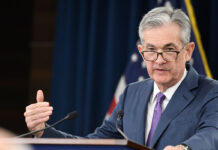Holocaust Remembrance Day, observed on January 27th, continued to play a pivotal role in honoring the memory of the Holocaust, a period marked by the systemic extermination of six million Jews and the oppression of various other groups by the Nazi regime. This day, designated by the United Nations General Assembly, coincides with the anniversary of the Auschwitz-Birkenau liberation and stands as a universal call to remember the atrocities of the Holocaust.
President Joe Biden, in his statement, highlighted the continuing relevance of this day, especially in the context of recent events that have brought to light the persisting issues of antisemitism and Holocaust denial. He emphasized the need for vigilance and commitment to fighting these issues, drawing attention to the recent Hamas attack on Israel in 2023 as an example of ongoing threats to Jewish communities.
The United States Holocaust Memorial Museum played a significant role in the commemorations, hosting various events that included survivor testimonies, highlighting the importance of Holocaust education in preventing future atrocities. The museum’s initiatives are crucial in confronting the rise of antisemitism and Holocaust denial globally.
In contrast to the international observation on January 27th, Israel commemorates Holocaust Remembrance Day, or Yom HaShoah, typically in April. This day includes nationwide activities like a two-minute silence and various ceremonies, signifying a profound period of reflection and remembrance.
Holocaust Remembrance Day stands only as a day to mourn but also as a reminder of the importance of education, awareness, and action against antisemitism and hatred, ensuring the lessons of the Holocaust resonate and influence current and future generations.
Image is licensed under the Creative Commons Attribution 4.0 International license and was created by Dan Hadani collection / National Library of Israel / The Pritzker Family National Photography Collection









